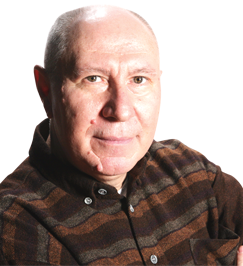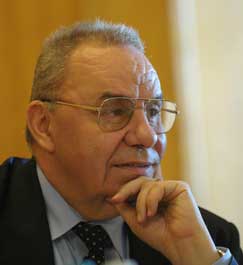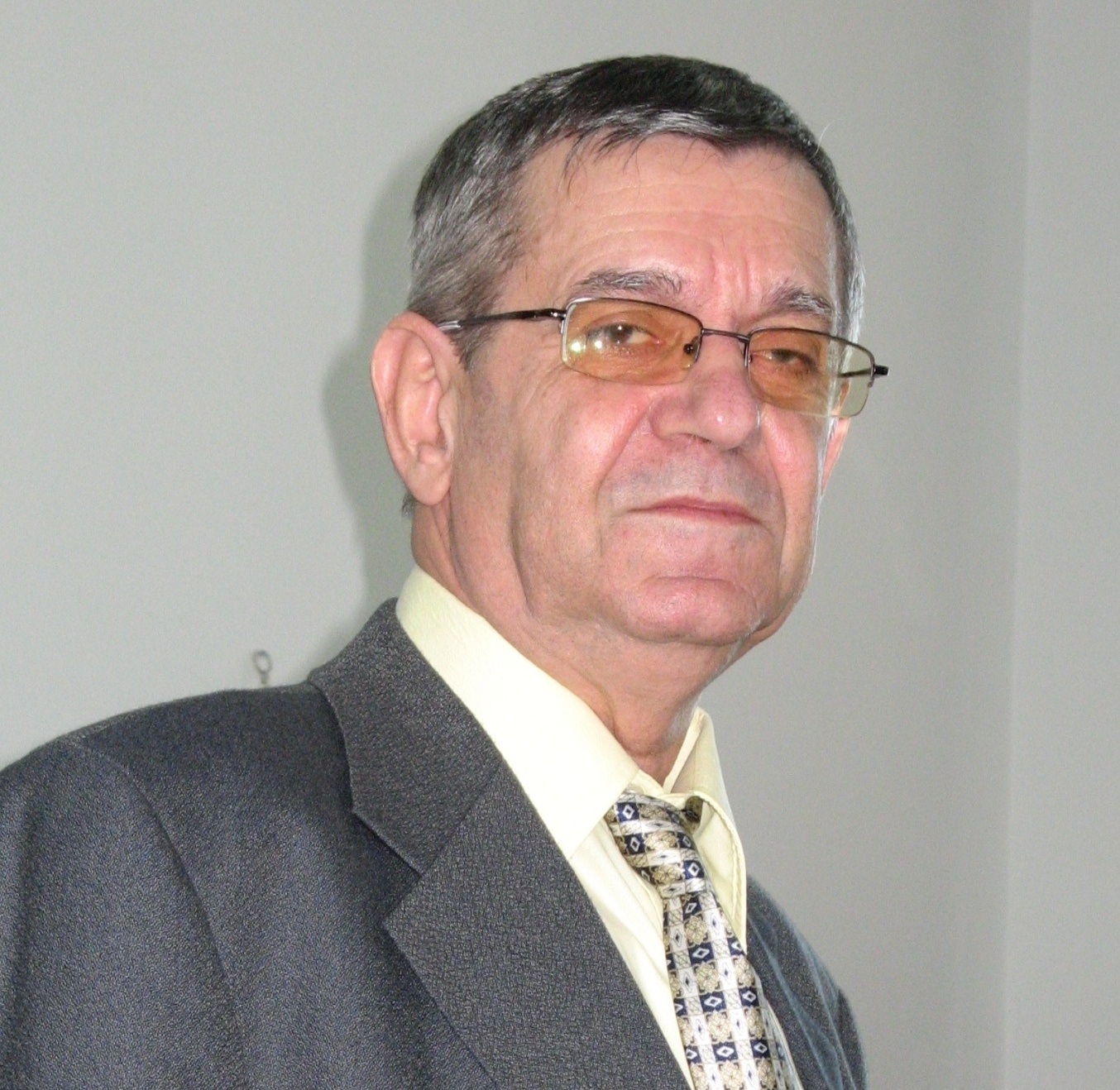Serge Raffy, a French journalist with Le Nouvel Observateur, worked for a month to document in Paris and Bucharest the story of the French and Romanian journalists kidnapped in Iraq and sharing their detention cell at the beginning of this year. Following the publication of the story in the French newspaper, Jurnalul National daily interviewed once again two of the Romanians held captive.
Jurnalul National: The French media was very active in the past week and gave a lot of details about the detention of the Romanian and French journalists. What do you think it is going on: no one is in any danger anymore, in Iraq, so now information may be released?
Ovidiu Ohanesian: I have no idea. Unfortunately, one cannot double check this type of information. Where ever there are fluid and dangerous situations people are kidnapped. It looks like the journalists made a few speculations but did not reveal the whole truth.
JN: Le Nouvel Observateur refers to the episode in which you were beaten up by your captors. What was the real reason for the beating; so far you had been pretty tight lipped about the incident.
OO: The journalists mixed things up a little bit. I was beaten up because I refused to cry swhen shooting the video-tape to be sent to the Romanian authorities, trans. notet. They were also upset because I did not react when they called me by the Arab name they put me sactually the prisoners were assigned numbers, in Arabic, trans. notet
JN: During the press conference you and your colleagues organized here, in Bucharest, you also kept a more reserved attitude, which made us all think that there was more to it than a beating.
OO: You all saw that we tried to not give details that might have upset our former captors, given that Florence Aubenas and Hussein Hanoun were still in their hands. We were threatened into keeping silent, as later one it was proved they were too.
JN: I asked Marie-Jeanne Ion the same question: it was said that the head of the kidnappers, called Abu Sahar and by many other names, had a very fine sense of humor. How would you characterize him?
OO: I am unable to comment on this. If you read the interviews I gave and the articles I wrote on the subject of our kidnapping, then you know that I was on no joking terms with any of them. If other people were, then it is entirely their business. My attitude towards them was consistent all through my captivity.
JN: I found it strange that in Le Nouvel Observateur article there was only one mention of Mohammad Mounaf sformer translator and guide to the Romanian journalists, trans. notet. How do you interpret it, given that, according to the official version, Mounaf was one of the accomplices to the group planning your kidnapping in Iraq?
OO: I do not find it strange at all. As long as the Americans keep Mounaf in custody in Iraq, and do not hand him to the Romanian authorities, the truth will not be found out.
JN: Raffy wrote at the end of his article that according to information he gathered in Paris and Bucharest, from the intelligence services, there were no more prisoners in the dungeon you were all kept in. He also said that the head of the kidnappers vanished into thin air. Do you have information to confirm these?
OO: I have no idea on what happened there, after we were freed. This is why I gave little information when I addressed the subject. As for Abu Sahar, it was only natural for him to vanish, for he has a lot of answering to make in front of the Iraqi authorities. He is also one of the people who know who stood behind the whole kidnapping operation, since it is clear that Omar Hayssam and Mounaf were only the front. Abu Sahar knows who the true master mind is.
JN: So, after all this time you think differently? Are Hayssam and Mounaf guilty of organizing your kidnapping or not?
OO: They took part in it, but not they were the organizers; they were only the tools, and now they have to take the heat of the investigation and also the responsibility which morally is not theirs. So, it is only right that they should pay for their actions.
JN: Mounaf included?
OO: Him too. He is not held by Americans for no reason. Look up into his past: who are his parents, his family, where did he study, what were his jobs, how did he get rich, and you will come closer to the truth. Look into the past to see the truth and who they worked closely with.
JN: You said at one point that you will conduct your own investigation. Is this still valid?
OO: Yes, of course. There are new elements which lead towards one conclusion only.
JN: May I ask which?
OO: I cannot state it yet; I expected my colleagues in the media to bring it forth; to reach the right conclusion and find out who were the moral authors of the kidnapping; it would suffice to look into the past of the main actors.
JN: This looks like a daunting task for all of us.
OO: On the contrary: it will suffice for Mounaf to be brought to Romania to find out the whole truth.
JN: You really think that it would be possible?
OO: Once he will come back to Romania shis statements, trans. notet will cause earthquakes in the political, economic and media markets.
Jurnalul National: The French media made public in the past week all sorts of details regarding your captivity. What do you think: there is no danger to other hostages anymore?
Marie-Jeanne Ion: I donât know. I tried to go on with my life and stop asking myself questions. I do not think the new information is endangering anyone. I only think that authorities are fully aware of the situation in Iraq and simply cannot share their information with the journalists. It is clear to me that my colleagues in France got their information from other sources than the primary ones, because the time for full disclosure did not come yet.
JN: The article in Le Nouvel Observateur exposes one detail that you failed to share with the Romanian public: that you and Mounaf tried to convince your captors that the two of you were secretly married. How did you do that?
MJI: I did not try to keep it a secret; it may be only that Romanian journalists were not too interested in this detail. We told our captors that we were secretly married in order to fend off possible physical abuse against me. I do not believe we were very convincing, since our body language did not show that kind of close relationship. At the end of the day I got away unharmed because devout Muslims may not touch a non-Muslim woman, as I understood later.
JN: What was the real reason why Ovidiu sOhanesiant was beaten up? He was too ashamed to give more details, but the French media says he was unable to pronounce the word "99" in Arabic.
MJI: He was indeed unable to pronounce it; he did not understand it. Truth told, his code number was the most difficult to pronounce. The Arabic language is as difficult to us as Chinese, for instance. What else can I tell you? There were all sorts of weird situations, and some people are unable to react as requested in such instances. It all goes down to each individualâs psychological make-up.
JN: It was said that Abu Sahar, the head of your captors, had a good sense of humor. How would you describe him?
MJI: He had a sort of black, twisted sense of humor. He, for instance, liked a lot one video tape of a journalist held hostage in a cage, who was begging the authorities in his country to intervene. Abu Sahar wanted that the video tapes he made with us would arrive at the same level of "artistic" performance. He was having a good time when he was asking us to perform at that level. But that journalist was beheaded, in the end.
JN: From your understanding, how many of you were held in that basement?
MJI: Enough of us were down there to turn the air bad in a two by four room.
JN: Raffy says at the end of his articles in Le Nouvel Observateur that according to intelligence services in both Paris and Bucharest there were no more hostages in that basement and that the head of your captors vanished in thin air. What do you know about that?
MJI: I do not believe that basement is empty. Or, in case that particular location is empty, there must be other locations for the same purpose. I believe that if we keep on talking about this subject others will bear the consequences. I would like to know that the people who held us captive are now in their turn captive, this time in the hands of the Iraqi authorities. They would not have an easy ride. I would like to find out one day that all things went well in Iraq and that they had a positive outcome; but for the time being there are no signs we will see any of that soon â¦
JN: It is strange that in an article the size of that published in Le Nouvel Observateur there is only one mention of Mounafâs name. Do you believe that he was an accomplice to your kidnapping, as masterminded by Hayssam?
MJI: I gave a statement, as a witness, in the criminal file opened against them. I do not want to say anything on the topic before the courts will rule on the matter.
JN: Did you ever consider investigating your own kidnapping case, as a journalist?
MJI: Maybe, some time from now I will do it. For the time being I try to put some order in my life. Anyway, I do not think one is able to investigate properly at this point.
JN: How did you know in what district of Baghdad you will be taken to by your captors?
MJI: When the cars stopped for the kidnappers to shut the trunk top opened by Sorin and Ovidiu, who were inside, one of the men in my car shouted to someone in the car behind us: "Amrie." This is the name of a district in Baghdad. I knew that, and wrote it in the SMS message I sent to the news desk in Romania, hoping that this could be useful information for the people coming to our rescue. For a long time I thought this action of mine was the reason why we were reprimanded with being located in that basement. But it turned out that not this was the reason whyâ¦
Serge Raffy, the journalist with Le Nouvel Observateur who investigated the kidnapping of both the French and Romanian journalists, gave a short interview to his colleague Laure Gnagbe, in which he explained his work:
Serge Raffy, the journalist with Le Nouvel Observateur who investigated the kidnapping of both the French and Romanian journalists, gave a short interview to his colleague Laure Gnagbe, in which he explained his work:
Laure Gnagbe: You just published an extensive investigation into the "secrets of freeing Florence Aubenas." How did you work on it?
Serge Raffy: I dug into it, starting at the very beginning. In September last year I completed my and Sara Danielâs investigation into the kidnapping of Christian Chesnot and Georges Malbrunot. We warned Florence Aubenas of our intentions. She kept her ground and consistently denied to give information. On the other hand, though, she was thrilled that a journalist was trying to crack open the case. It took me almost one month to document the article. I met all people who directly took part in her freeing, or were only remotely part of the operation. I interviewed the journalists with Liberation scolleagues of Aubenas, trans. notet, the members of the Julia team sa controversial French parliamentarian who had connections with the Arab world and was part of the negotiations in freeing Chesnot and Malbrunot, writerâs notet, and members of the intelligence services. Thus I was able to gather information from the least important middle-man to the top leadership of the state.
LG: Florence Aubenas refused to give an account of her story upon returning back to France. Are you not afraid that making public the information you gathered will endanger the lives of other hostages?
SR: This is an important issue. But I refuse to be blackmailed into silence and pressured into living in fear, either the pressures are coming from the kidnappers or from the intelligence services. There is a constant pressure from these quarters to hold our piece. Florence Aubenas was held hostage, was humiliated, and this is a criminal act which has to be exposed, as others should too. If we accept the contrary then this will be the end of democracy and of the journalistic profession as a whole.









